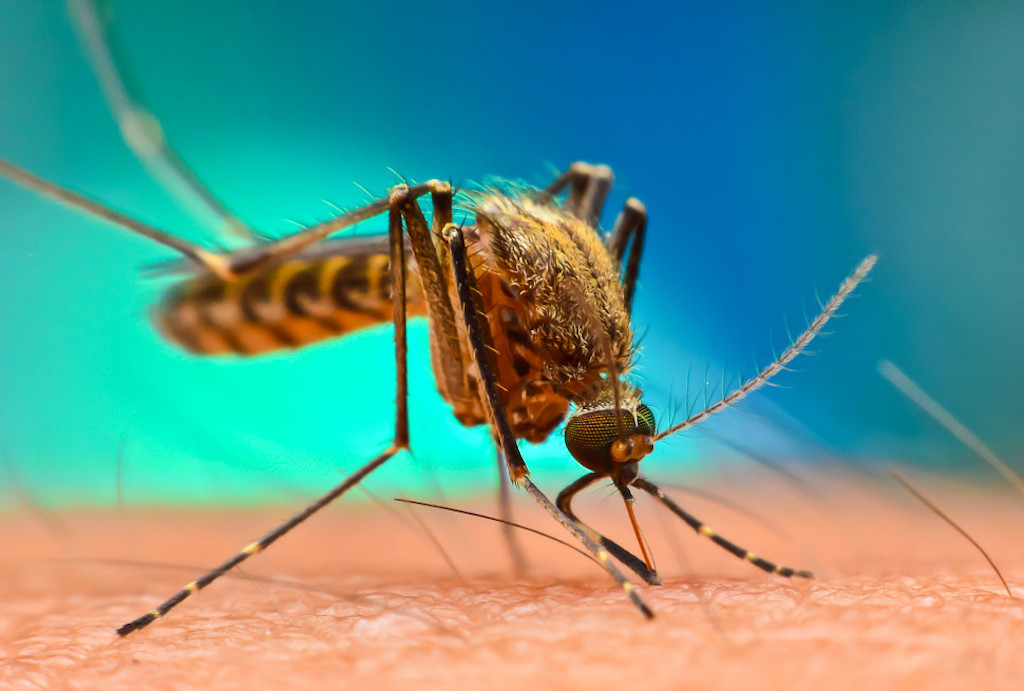As the monkeypox (mpox) outbreak in Africa spreads, epidemiologists have said the Federal Government’s directive mandating all travellers entering the country to fill out a health declaration form in only two international airports won’t halt the importation of dangerous strain into Nigeria.
The public health physicians said although Nigeria has its mpox variants with no fewer than 39 cases recorded since February till date, the Federal Government must intensify monitoring and screening procedures at all entry points in the country to prevent the importation of deadlier variants from the Democratic Republic of the Congo into the country.
The physicians pointed out that overlooking travellers entering through Port Harcourt, Kano, and various land borders poses a potential risk.
PUNCH Healthwise reports the Federal Ministry of Health and the Nigeria Centre for Disease Control and Prevention designed the health declaration form for international passengers to guide against the surging new strain of mpox in some African countries from spreading to the country.
The ministry said the directive, instituted to curb the spread of the disease, takes effect from August 11, for passengers arriving at the airports in Abuja and Lagos
The Africa Centre for Disease Control on Tuesday declared a public health emergency over the growing mpox outbreak on the continent.
The outbreak has swept through several African countries, particularly the Democratic Republic of Congo.
There is a serious and growing outbreak in the Democratic Republic of the Congo that has now expanded outside the country. A new viral strain, which first emerged in September 2023, has, for the first time, been detected outside DRC.
The World Health Organisation stressed that the emergence last year and rapid spread of a new virus strain in DRC, clade 1b, which appears to be spreading mainly through sexual networks, and its detection in countries neighbouring the DRC are especially concerning, and one of the main reasons for the declaration of the PHEIC.
So far, about 2,863 confirmed mpox cases and 517 deaths across 13 African countries have been reported in 2024 alone.
In Nigeria, cumulatively, a total of 39 confirmed cases and zero deaths have been recorded across 33 States and the FCT, from the beginning of the year 2024.
Mpox is a rare viral zoonotic infectious disease (i.e., disease of animals transmitted from animals to humans) that is endemic in several African countries including the tropical rainforests of Central and West Africa. The exact reservoir of the virus is still unknown, although rodents, squirrels,s and monkeys are suspected to play a part in transmission.
Speaking exclusively with PUNCH Healthwise in different interviews, the epidemiologists urged the government to intensify surveillance at land borders and other airports.
They emphasised the need for comprehensive measures to prevent the spread of the highly transmissible variant from entering Nigeria, which had already been identified in several other African countries.
A Consultant Epidemiologist and Public Health Physician at the Ahmadu Bello University Teaching Hospital in Zaria, Kaduna State, Prof. Aisha Abubakar, stressed the importance of making the Mpox vaccine widely available to contain the Mpox virus in addition to ensuring a comprehensive policy.
Abubakar said, “It’s important to distinguish between the endemic strains we have in Nigeria and the new, more transmissible strains currently spreading in Congo, DRC. While we have Indigenous mpox, our main concern is the potential arrival of a more virulent and easily spreadable variant.
“To mitigate the risk of importing this mpox variant, the government has mandated travellers entering Nigeria to complete a health declaration form.”
She said that the current policy, focusing solely on travellers arriving through Lagos and Abuja airports was inadequate to address the potential threat.
The epidemiologist pointed out that travellers entering through Port Harcourt, Kano, and various land borders should not be overlooked, warning that it could create a potential route for the importation of the dangerous mpox variant into Nigeria.
Abubakar explained, “The health declaration for incoming air travelers through Abuja and Lagos airports is inadequate because it does not account for those arriving through Port Harcourt, Kano, or land borders. These travelers might be missed, increasing the risk of introducing the more transmissible mpox variant.”
She said that the Nigerian variant of mpox even before COVID-19 was known to spread not only through contact with infected animals —whether through handling, cooking, or skinning — but also through sexual contact.
Abubakar emphasised the urgency of making the Mpox vaccine widely available to prevent infections, expressing concern that the current vaccine supply might be insufficient, and noted that many of the vaccines have been provided freely.
She also stressed the importance of effective risk communication, saying, “In addition to preventive measures, there must be clear and widespread communication about how mpox can be transmitted.
“This information should be disseminated through mass media, the NCDC, and other relevant channels, especially targeting those at highest risk. People need to understand how they can contract the virus to better protect themselves.”
Advising the public, she added, “Nigerians should avoid contact with animals, as this is not the time for consuming bushmeat. Care should be taken when caring for infected individuals, as Mpox can be transmitted through them. Anyone who suspects they have Mpox should seek medical attention promptly for proper diagnosis and care.”
Corroborating Abubakar’s statement, another Epidemiologist and Professor of Public Health at the University of Ilorin, Kwara State, Tanimola Akande, emphasised the need to contain the threat of mpox spreading further from outside Nigeria.
Akande said, “The threat of mpox spreading further, particularly from outside Nigeria, must be addressed by strengthening border surveillance. The government should urgently ensure that vaccines are distributed and administered to at-risk populations and beyond.”
Akande said that the mpox outbreak is increasing, urging heightened vigilance and preventive measures.
He warned, “Dead animals must not be eaten and should be carefully handled and disposed of to prevent infection. It is hazardous to consume sick or dead animals, as this could contribute to the spread of mpox.”
Akande advised that the Nigerian government needs to enhance surveillance efforts, suggesting building on the strengthened surveillance systems established during the COVID-19 pandemic.
He further stressed the importance of raising massive awareness about Mpox and educating the public on preventive measures to help contain any potential outbreak in Nigeria, saying that those handling dead animals should use personal protective equipment like gloves and face masks.
“Such animals should be properly buried or better still incinerated where an incinerator is available. Strong disinfectants should be used by those who have contact with such animals and also report such cases to appropriate authorities.
“All Nigerians need to be aware of the potential threat of Mpox outbreak. All appropriate measures must be taken by individuals. This includes desists from eating sick and dead animals.
“The government will need to step up awareness and health education and intensify surveillance. Health workers’ suspicion index should be high to detect cases early and take preventive measures against further spread of cases,” he added.
The mpox virus can spread both from animal to human and from human to human. Animal-to-human transmission may occur by direct contact with the blood, body fluids, skin, or mucosal lesions of infected animals (e.g., monkeys, squirrels, and rodents). This can happen through a bite, scratch, handling of, or eating inadequately cooked or other products of infected bushmeat.
Human-to-human (person-to-person) transmission occurs when a person comes into contact with the virus from an infected human or materials contaminated with the virus, such as clothing or bedding.
Symptoms of the illness include fever, headache, body aches, weakness, swollen lymph nodes (glands), and a rash. After about one to three days of fever, the rash erupts, beginning on the face and then spreading to the body with the face and palms/soles being mostly affected. They can also occur in and around the genitals, which is why contact during sex is another mode of transmission.

 4 months ago
13
4 months ago
13















 English (US) ·
English (US) ·